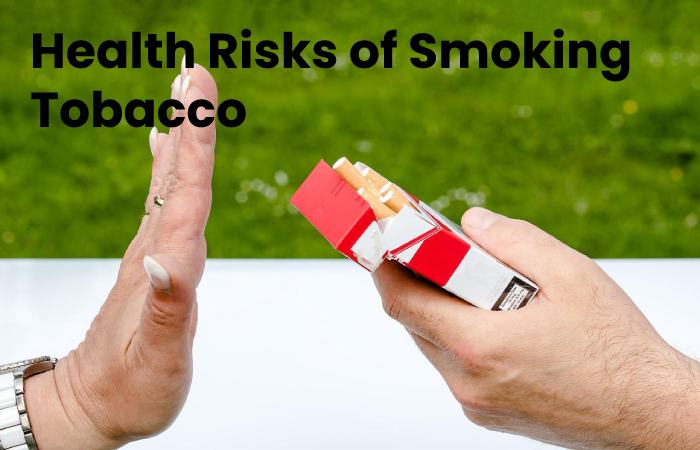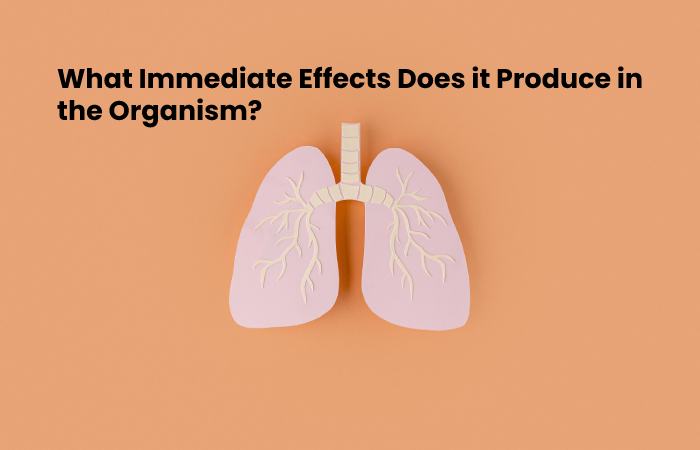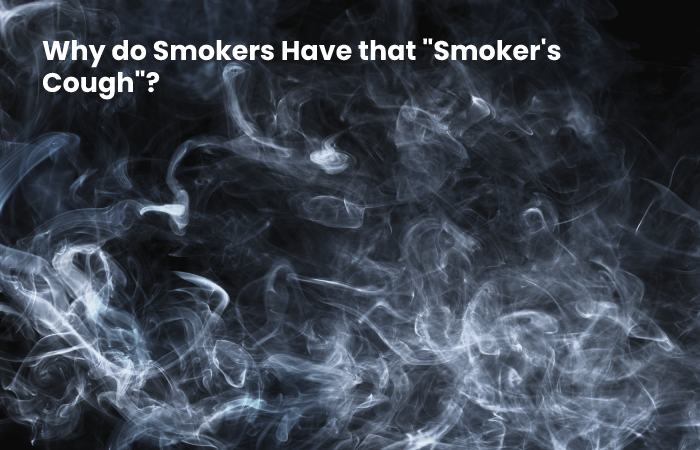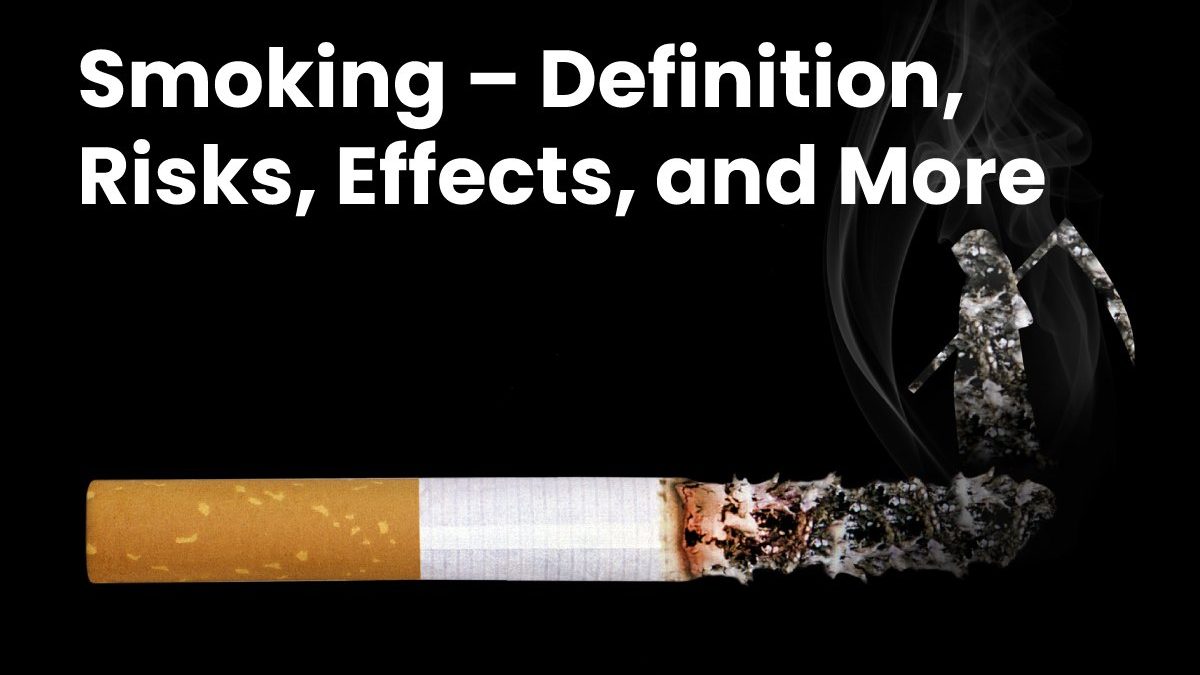Table of Contents
Definition
Smoking raises the risk of many types of cancer, including cancers of the mouth, throat, esophagus, larynx, bladder, pancreas, kidney, cervix, and some types of leukemia. Overall, smoking causes 30% of all cancer deaths. Heart and circulatory system problems
Health Risks of Smoking Tobacco

In the United States, about half of all people who continue to smoke will die from the habit. More than 480,000 people expire each year from diseases related to tobacco use. It means that smoking causes about 1 in 5 deaths in the United States each year.
Cigarette smoking kills more Americans than alcohol, car accidents, AIDS, firearms, and illegal drugs combined. Cigarette smokers die younger than non-smokers.
Smoking shortens male smokers’ lives by about 12 years and female smokers’ lives by about 11 years.
Smoking causes cancer but can cause damage to almost every organ in the body, including the lungs, heart, blood vessels, genitals, mouth, skin, eyes, and bones.
What Immediate Effects Does it Produce in the Organism?

Smoking a cigarette means exposing yourself to numerous harmful substances to your health and the risk of developing a dependency.
Carbon monoxide founds in tobacco smoke, and it passes into the blood through the lungs. On the one hand, it is responsible for the damage to the vascular system and the decreased oxygen transport to the tissues of our body; on the other. It produces fatigue, cough and expectoration.
Nicotine acts on the areas of the brain that regulate pleasurable sensations, causing the appearance of dependence. It also works on the cardiovascular system and increases heart rate and the possibility of arrhythmias. In addition, it produces changes in blood viscosity and increases triglyceride and cholesterol levels.
Unlike the Attractive Image it Sometimes has, Tobacco Produces some Undesirable Alterations Shortly after Starting to be Consumed, Among Which are:
- Premature wrinkles in the upper lip area, around the eyes (crow’s feet), chin and cheeks, and greyish coloration of the skin constitute the so-called “smoker’s face”.
- Bad breath and foul body odor due to the impregnation of the smell of Tobacco.
- Yellow spots on nails and fingers after taking Tobacco.
- Young people who start smoking do not usually attach importance to the effects that Tobacco will
- produce on their long-term health. Still, there are other effects, closer in time, that has demonstrated in the youth population and can verify without the need for chronicity in tobacco consumption.
Short-Term Effects on Young People
- Increased recurrence of colds.
- Increased cough.
- Decreased sports performance.
- loss of appetite
Why do Smokers Have that “Smoker’s Cough”?

Tobacco smoke contains many chemicals and elements that irritate the airways and lungs. When a smoker breathes in these substances, the body tries to remove them by producing mucus and coughing.
The well-known morning cough of smokers occurs for several reasons. Usually, tiny hair-like structures in the airways help move harmful materials out of the lungs. But tobacco smoke weakens the purifying action, so some smoke particles remain in the lungs, and mucus stays in the airlines.
So-called “smoker’s cough” can be the first sign of COPD.
How Smoking Affects your Heart and Blood Vessels?
Smoking harms the heart and blood vessels (cardiovascular system), increasing the risk of heart disease and stroke. It is a significant reason for coronary heart disease, leading to a heart attack.
Smoking also causes high blood pressure, reduces your ability to exercise, and increases the chance of blood clotting. It also lowers HDL (good) cholesterol levels in the plasma.
It can cause leg pain when you walk and lead to open sores that don’t heal. Surgery to improve blood circulation is often ineffective in people who continue to smoke. For this reason, many doctors who perform surgery on the blood vessels (vascular surgeons) refuse to perform operations on PVD patients unless they stop smoking.
Other Ways Smoking Affects your Health
Not all health problems related to smoking end in death. Smoking affects the smoker’s health in many ways, causing damage to almost every organ in the body and causing many diseases. Here are some examples of other ways Tobacco disturbs your health:
- Increased risk of gum disease and tooth damage
- Injuries take longer to heal
- Decreased immune system function
- Increased risk of type 2 diabetes
- Reduced sense of smell and taste
- Premature skin ageing
- Bad breath and stained teeth
- Increased risk of cataracts (opacity of the lenses of the eyes)
- Low bone density (thinner bones), which means a higher risk of broken bones, including hip fracture
- Increased risk of rheumatoid arthritis
- Increases risk of age-related macular degeneration, which can cause blindness
- Increased risk of peptic ulcers
- Many of the problems associated with smoking can rob a person of quality of life long before they die. Smoking-related illnesses can make breathing, getting around, working, or playing harder.
- Leaving smoking, especially at younger ages, can reduce smoking-related disability.
Conclusion
Smoking addiction occurs when nicotine is needed and cannot stop. Chemical in Tobacco that makes it hard to quit smoking. Smoking produces pleasurable effects on the brain, but these effects are temporary. So you take another cigarette. The more you smoke, the more nicotine you need to feel good.
When you try to stop, you experience unpleasant mental and physical changes. These are the symptoms of nicotine withdrawal. Regardless of how long you’ve smoked, quitting can improve your health. It’s not easy, but you can break your nicotine addiction. There are many effective treatments available.
Also Read : Cancer Treatment – Introduction, Types, Risks, and More


